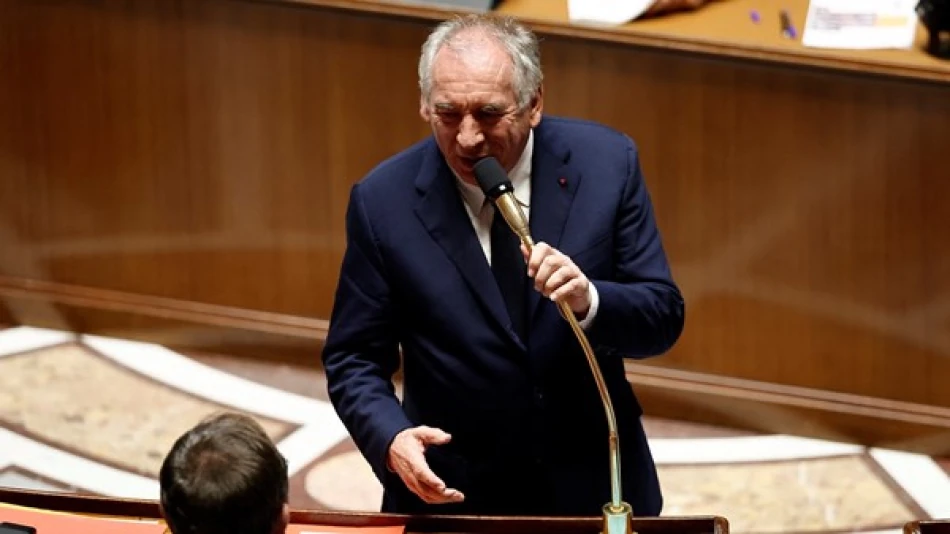
French PM Suffers No-Confidence Vote Setback in Parliament
France's Government Collapses as Debt Crisis Exposes Deep Political Paralysis
French Prime Minister François Bayrou lost a confidence vote in parliament on Monday, marking the second government collapse in just nine months and highlighting France's inability to tackle its spiraling debt crisis. The National Assembly's rejection of Bayrou's deficit-reduction plans leaves President Emmanuel Macron with few viable options and deepens concerns about political stability in Europe's second-largest economy.
A Government That Never Had a Chance
Bayrou, 74, will submit his resignation to Macron on Tuesday after serving just nine months as prime minister. His brief tenure underscores the fundamental challenge facing French politics: no party or coalition commands a parliamentary majority, making governance nearly impossible.
The confidence vote centered on Bayrou's plans to rein in France's ballooning public debt, which has become a pressing concern for both domestic lawmakers and international investors. France's debt-to-GDP ratio has steadily climbed, putting pressure on the government to implement austerity measures that lack popular support.
Macron's Shrinking Options
The president now faces two equally unappealing choices: appoint another prime minister who will lack parliamentary backing, or call early legislative elections that could further fragment an already divided political landscape.
The Risk of Political Gridlock
Appointing a new prime minister without majority support virtually guarantees continued instability. France has already witnessed this scenario play out twice in less than a year, suggesting that the underlying political mathematics haven't changed.
Early elections present their own dangers. With Marine Le Pen's far-right National Rally gaining ground and left-wing parties refusing to cooperate with Macron's centrists, new elections could produce an even more fragmented parliament.
Economic Implications Mount
The political chaos comes at a particularly challenging time for France's economy. The country faces pressure from European Union fiscal rules to reduce its deficit, while also dealing with inflationary pressures and slowing growth.
Bond markets have already shown nervousness about France's fiscal trajectory, with the spread between French and German government bonds widening in recent months. Continued political instability could further undermine investor confidence and increase borrowing costs precisely when the government needs to fund its operations.
A Pattern of European Political Fragmentation
France's governmental crisis reflects broader trends across Europe, where traditional political coalitions are breaking down. Germany has struggled with its own coalition challenges, while Italy has seen frequent government changes in recent years.
However, France's situation is particularly acute given its central role in European Union decision-making and its status as a key pillar of the eurozone. Political paralysis in Paris could complicate EU responses to everything from defense spending to economic coordination.
The Debt Dilemma
The core issue that brought down Bayrou's government—how to address France's debt burden—won't disappear with a new prime minister. France's public debt exceeds 110% of GDP, well above EU targets, and demographic pressures from an aging population will only increase fiscal strains.
Any sustainable solution requires either significant spending cuts, tax increases, or structural reforms—all politically toxic in a fragmented parliament where opposition parties can block initiatives without offering viable alternatives.
The collapse of France's second government in nine months signals more than routine political turbulence. It reveals a democratic system struggling to function effectively when faced with difficult economic choices, potentially creating a template for governance challenges that other developed nations may soon face as debt burdens and political polarization continue to rise.
Most Viewed News

 Layla Al Mansoori
Layla Al Mansoori






